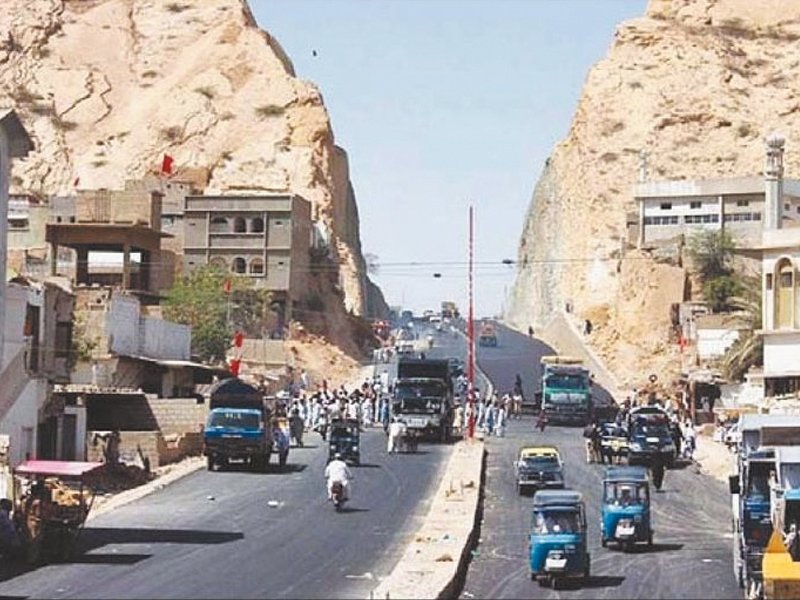
“Satire writing is God-gifted in my case. It is that genre in literature where vices, follies and shortcomings are held to make a point via making fun,” said Shah. Shah is a Pashtun and a rickshaw driver by profession. After offering his Fajr prayer, he leaves his house in his rickshaw to earn money. When there are no passengers, Shah spends time writing poetry.
The volatile Katti Pehari is home to many NGO workers, art and literature lovers, as well as calligraphers.
Shah is hired by politicians in the area during elections. They ask him to write satirical slogans and verses they then use against their opponents. Shah shared that while bloodletting during election campaigns is a common factor and “even though this is Katti Pehari, politicians prefer using satirical poems for campaigning rather than guns.” Thus, his words give political rivals of the area an alternative to firearms, and indirectly end up curtailing violence.
“I was hired by a candidate belonging to the PPP, whereas another person from this locality was hired by the Awami National Party (ANP). They used our poems during jalsas and meetings,” said Shah with pride.
“Hiring poets from Katti Pehari and using their work helps give a positive picture of this area,” shared PPP’s Dil Mohammad. “Too many political complications exist here. Peace is much needed and we want to get rid of weapons.”
According to him, when during election campaigns his party’s opponents found out about them hiring poets, they also hired poets in retort. They were able to use satirical poetry to answer us. “Roses are better than guns,” said Muhammad. “It is a good way to attract people instead of using terror to draw their attention.”
Looking at an ethnic breakup of this area, Pahar Ganj, Dir Colony, Kohistani Chowk and Umer Farooq Colony are a few areas of Katti Pahari that fall under Union Council (UC) 21. It has a majority of Pashtuns living there. Siraikis, Christians and the Gilgitis also form part of the Katti Pahari population. During the elections, almost all of the political parties campaigned here but nobody used terror and weapons for it.
“Satire is a clever tool for social criticism. It has become our culture,” said Ameen Spin, a resident of the area, praising this trend. “These poets are common people and work elsewhere for a living, but during elections they give time to satirical poetry only,” added Spin.
Published in The Express Tribune, January 17th, 2014.
COMMENTS (7)
Comments are moderated and generally will be posted if they are on-topic and not abusive.
For more information, please see our Comments FAQ

















I was born and raised in an area very close to what is now Katti Pahari. Although the area wasnt a model of peace, it wasnt as bad as I read/hear about it now. Given the ethnic mix of the area, it is obvious to me that the hill was split to incite racial tension. Whats really funny about the mqm claims of the pathtuns of the area going back to their 'homeland' is that the pakhtuns in the area have been there since before partition. Hence, they have a stronger connection to the land than the post-partition immigrants to the land.
Would have been nice if few of his couplets were also made part of this piece.